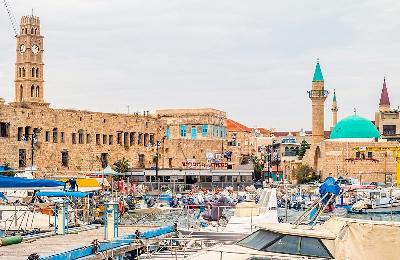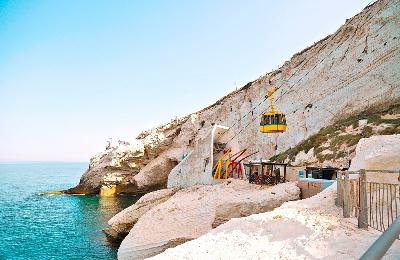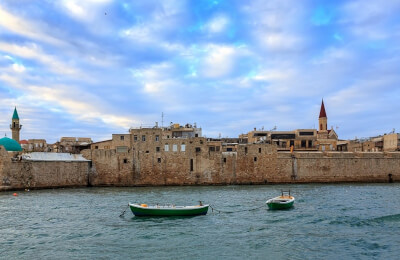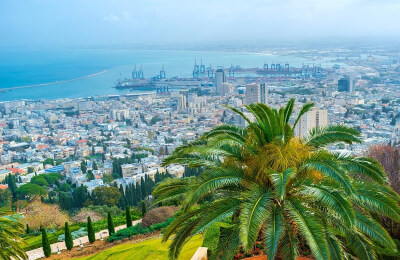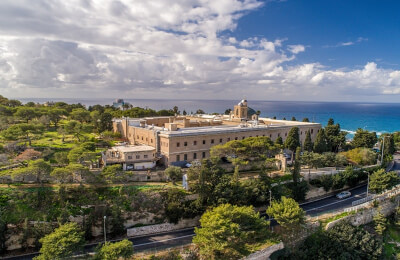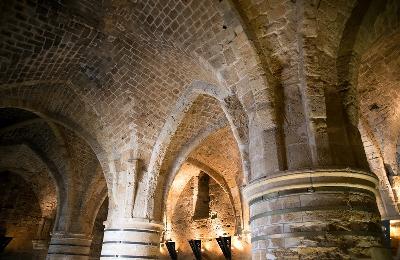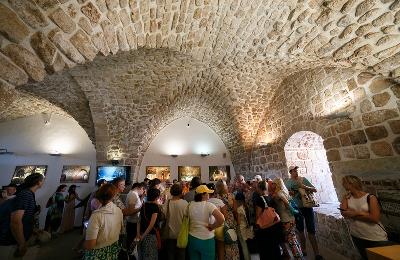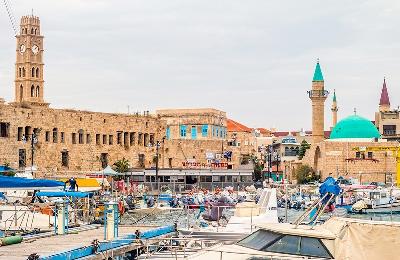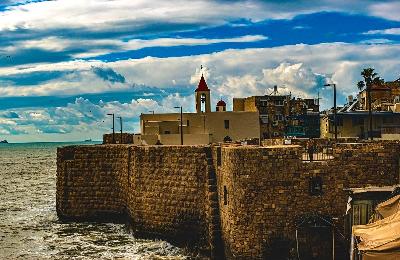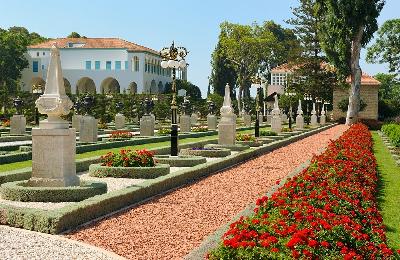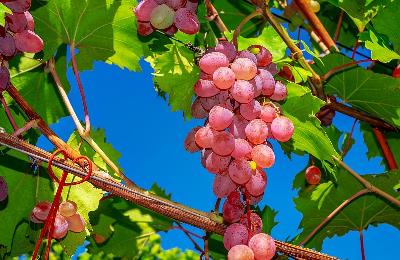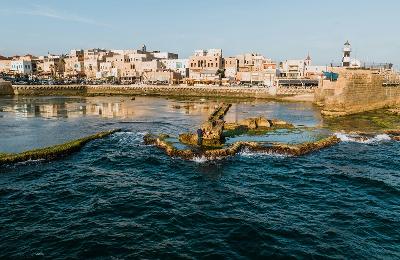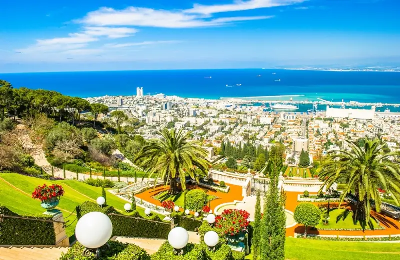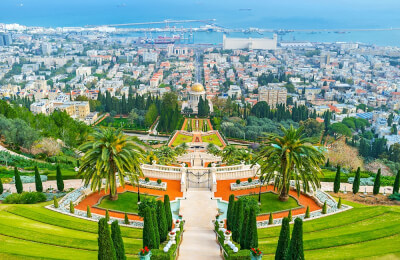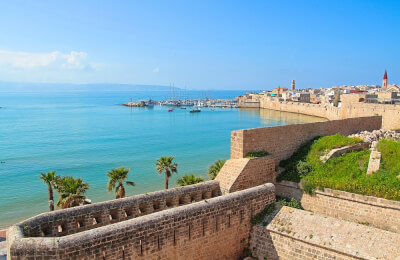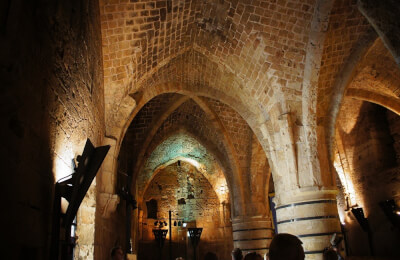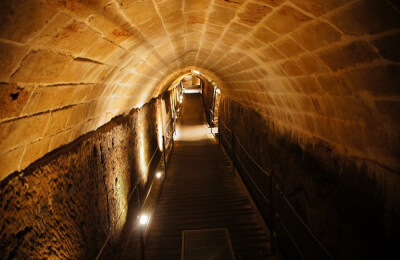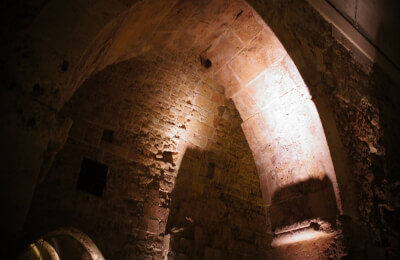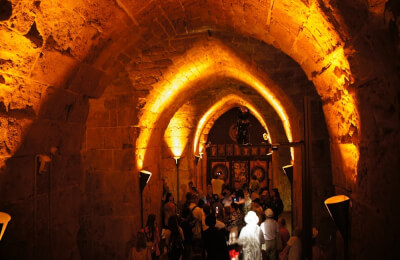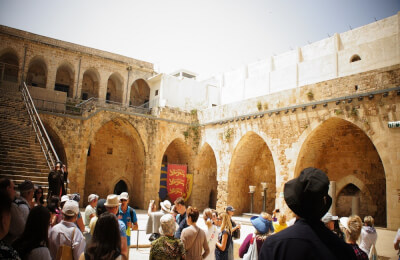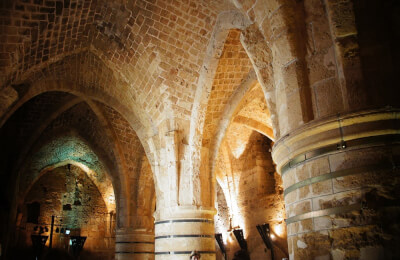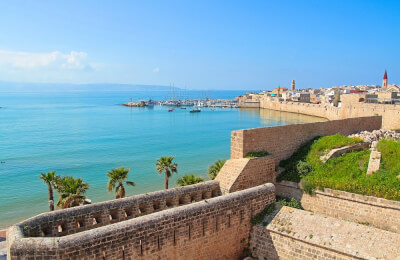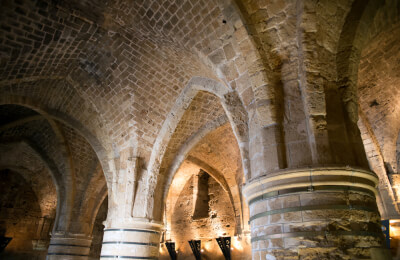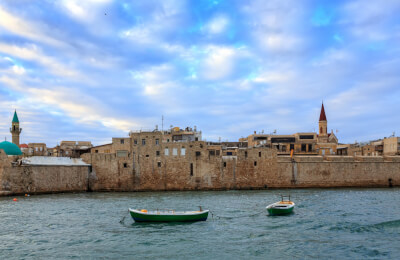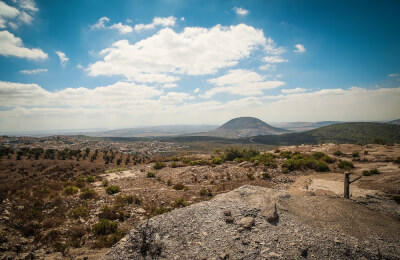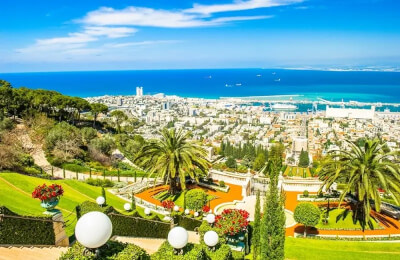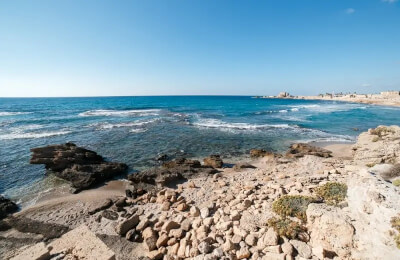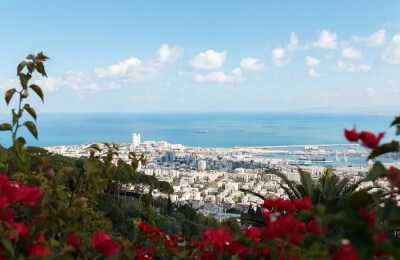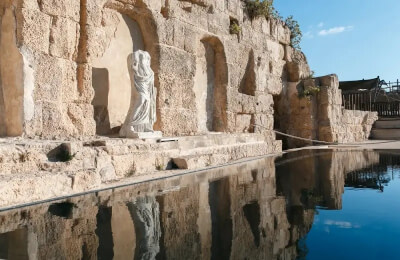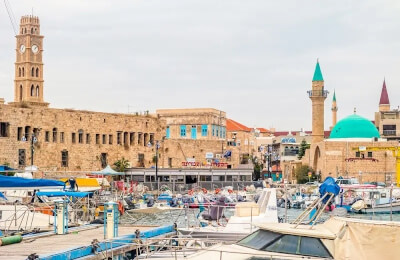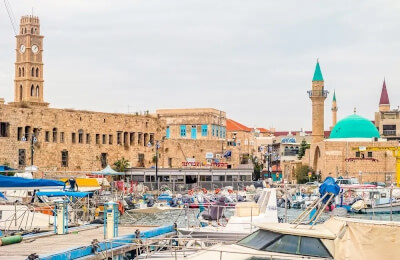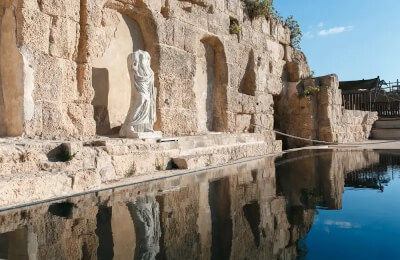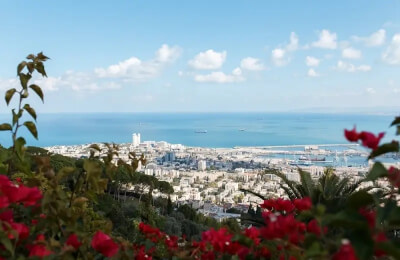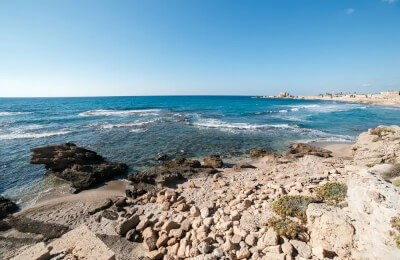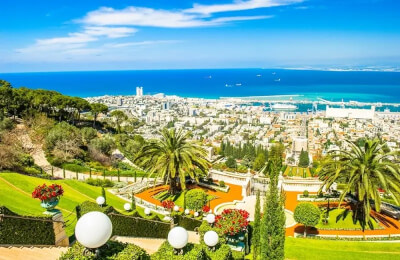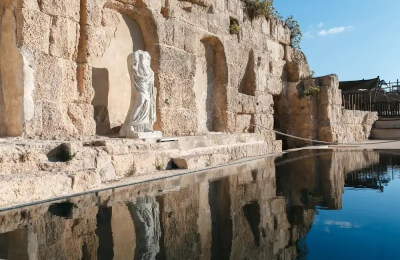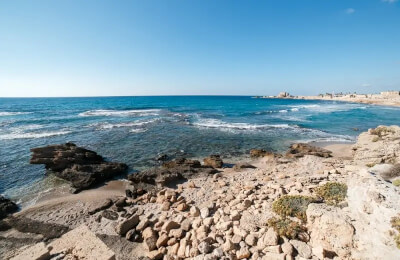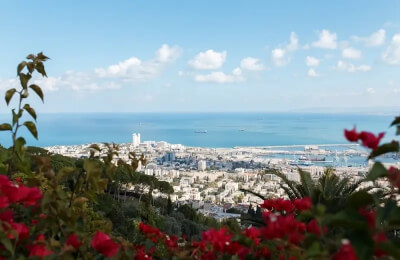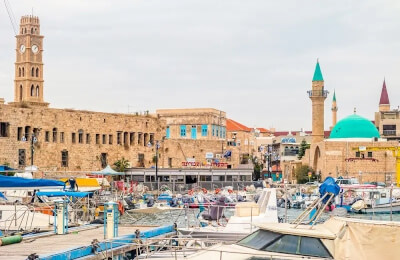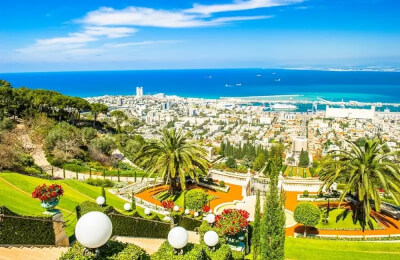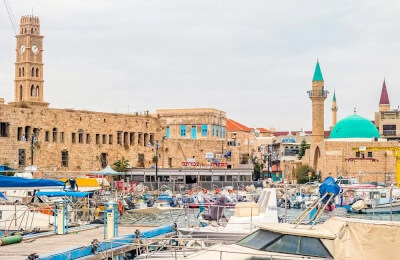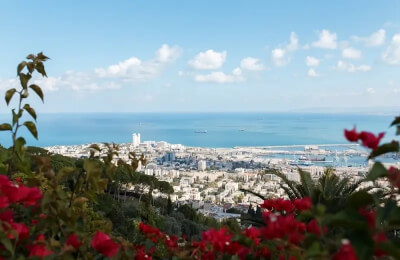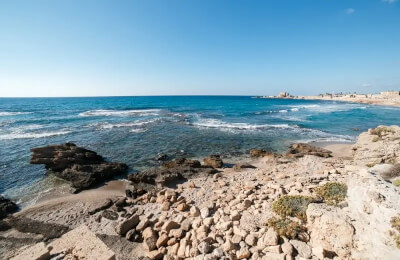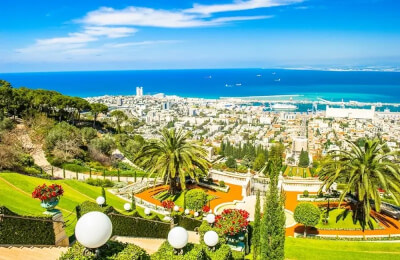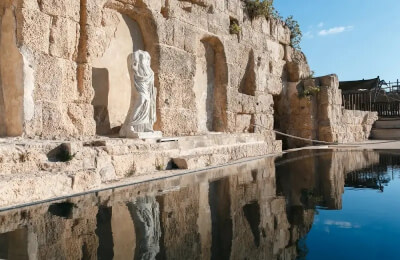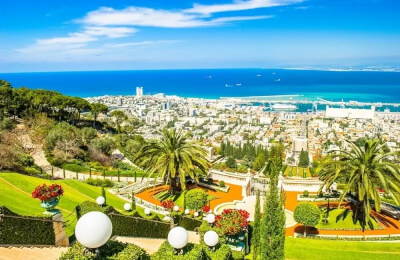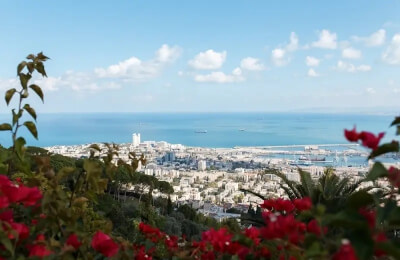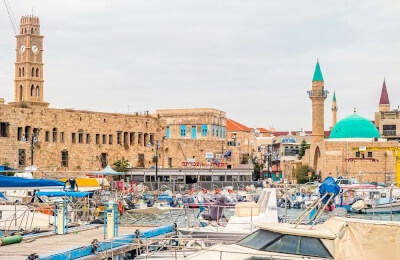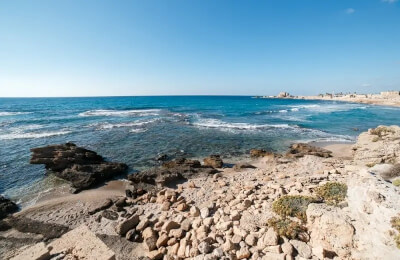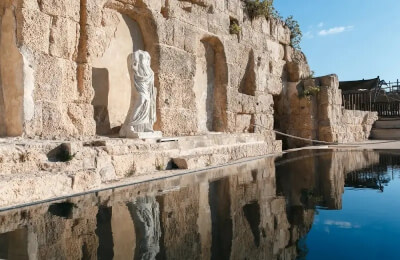11. Caesarea. Haifa. Acre Promotion
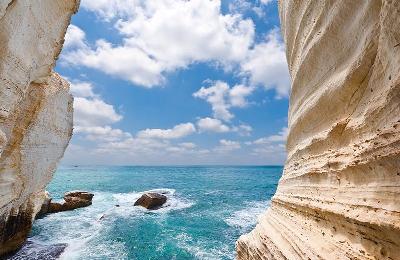
16. Haifa. Acco. Rosh-A-Nicra Reserve Promotion
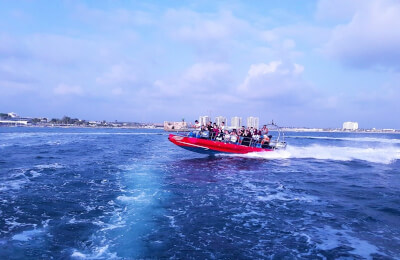
156. Haifa and boat ride Promotion
 195₪
195₪
 195₪
195₪
527. Bahai in Haifa and Akko. A sea walk Promotion
Lychi, Haifa and Akko Promotion
 225₪
225₪
 225₪
225₪
178. From Haifa to Akko by Waves Promotion
 175₪
175₪
 175₪
175₪
183. In the footsteps of the Crusaders Promotion
 230₪
230₪
 230₪
230₪
Caesarea, Haifa and Akko Promotion
Caesarea, Haifa and Akko Promotion
We also found excursions from other cities that are close to your departure city
Other excursions that also deserve your attention
Acre (often spelled as "Akko" or "Akka") is a city brimming with history, a place where every stone and every pathway tells a story. This ancient port city in northern Israel has seen the rise and fall of numerous civilizations, each leaving its imprint and adding to the rich tapestry that is Acre today. From the imposing walls and fortresses from the Crusader era to the vibrant markets echoing the Ottoman influence, Acre is a living museum, showcasing epochs of human history within its narrow streets and expansive courtyards.
**Acre: A Crossroad of Civilizations**
Acre's history is old and multifaceted. The city has been continuously inhabited since the time of the Phoenicians, who used it as a port city. Due to its strategic location, Acre has been coveted by various empires, including the Romans, Byzantines, Crusaders, Mamluks, and Ottomans. This has made the city a melting pot of cultures, religions, and architectural styles.
The Old City of Acre, which is encircled by imposing defensive walls, is a UNESCO World Heritage site, recognized for its historical and cultural significance. One of the most fascinating aspects of Acre's history is that much of its past is preserved not only in the structures and streets visible today but also in the layers underground. The city literally embodies history, with centuries-old remains lying beneath existing buildings and streets.
**The Citadel of Acre: A Testament to the Crusader Era**
The Hospitaller Fortress, or the Citadel of Acre, stands as a testament to the city's importance during the Crusader period. The knights of the Hospitaller order were instrumental in medical care during the Crusades, and their fortress is a prominent structure in Acre. Within its walls, the fortress contains both a courtyard and a complex of six halls, an intricate network of passageways, and rooms that served various functions.
An interesting fact is that the Citadel of Acre was used and modified by different rulers throughout history. After the fall of the Crusaders, the fortress was used by the Mamluks and Ottomans, serving various administrative and military functions. It also briefly functioned as a prison during the British Mandate in Palestine.
**The Enigmatic Templar Tunnels**
One of the most captivating attractions in Acre is the Templar Tunnel. This underground passageway stretches from the fortress to the city's port. The Templars, a military monastic order, constructed the tunnel during the 12th century. It was rediscovered in the 1990s and opened to the public, allowing visitors to explore this fascinating aspect of medieval engineering.
The Templar Tunnel is an incredible 350 meters long, and as visitors walk through, they can observe the various construction techniques used to build and support the tunnel. Informative signs along the path recount the Templars' history, shedding light on their presence and influence in Acre during the Crusades.
**The Bustling Market and Ottoman Influence**
Stepping out of the depths of history, visitors can experience the vibrancy of life in Acre by visiting the city's market. This bustling bazaar, with its colorful stalls selling spices, textiles, and local crafts, offers a glimpse into Acre's cultural heritage and daily life. The market area also features traditional Ottoman-era buildings, including the clock tower, which was constructed to celebrate the 25th anniversary of Sultan Abdul Hamid II's reign.
The Khan al-Umdan is another remarkable site reflecting the Ottoman era. It is one of the best-preserved caravanserais in Israel, characterized by its large courtyard, arched galleries, and the towering clock tower. Historically, this place was a hub for traders and travelers, and it continues to be a center of activity today.
**Bahá’í Holy Places: Spiritual Heritage**
Acre also holds significant spiritual value for members of the Bahá’í faith. The Bahá’í Gardens in Acre, along with those in nearby Haifa, are UNESCO World Heritage sites, renowned for their beauty and spiritual significance. These serene gardens are an intricate blend of geometry, landscaping artistry, and spiritual symbolism.
In Acre, the final resting place of Bahá'u'lláh, the founder of the Bahá’í faith, is located just outside the city. This site, known as the Shrine of Bahá'u'lláh, is the most holy place for Bahá’ís around the world and is a destination for pilgrimage.
**Acre’s Diverse Culinary Scene**
The culinary scene in Acre is as diverse as its cultural heritage. Given its coastal location, seafood is a specialty, and there are numerous restaurants where visitors can enjoy fresh fish and seafood dishes prepared using local recipes. Traditional Arabic sweets, Turkish coffee, and a variety of multicultural dishes reflect the city's diverse influences throughout history.
The Uri Buri Fish Restaurant is one of the most famous establishments in Acre, known for its innovative seafood dishes. The restaurant is located in an Ottoman-era building by the sea, adding to the overall historical experience.
**Festivals Bringing History to Life**
Acre comes alive with its vibrant festivals, such as the Acre Festival of Alternative Israeli Theatre. This event attracts performers from around the country and the world, transforming the city into a stage where the past and present meet. The festival's events are often held within historical sites, providing a unique atmosphere.
The Acre Fringe Theatre Festival is particularly interesting as it focuses on unconventional theatrical performances, often touching upon complex social issues. It's a platform where the ancient stones of Acre meet contemporary storytelling, highlighting a different facet of Israeli society.
**Conservation Efforts: Preserving a Legacy**
Conservation efforts in Acre are ongoing, ensuring that the city's rich history is preserved for future generations. These initiatives face the challenge of balancing preservation with the needs of the city's inhabitants. Restoration projects often uncover new historical findings, shedding more light on Acre's complex past.
One such project was the restoration of the ancient Turkish Bathhouse, known as Hammam al-Basha. Today, it serves as a museum where visitors can learn about the traditions surrounding public bathhouses and the role they played in social life during the Ottoman period.
**Concluding Reflections**
Acre is a city where history continues to live, not just in the ancient structures and archaeological sites, but in the daily lives of its residents. It's a place where visitors don't just observe history; they experience it as they walk through the markets, explore the tunnels, or relax in a centuries-old public bathhouse.
From the valor of the Crusaders and the spirituality of the Bahá’í faith to the legacies of the Ottoman Empire, Acre encapsulates the essence of human civilization, with all its complexities, conflicts, and confluences. Every visit to this timeless city provides a deeper understanding of the past and a reflection on how history continuously shapes our present.

